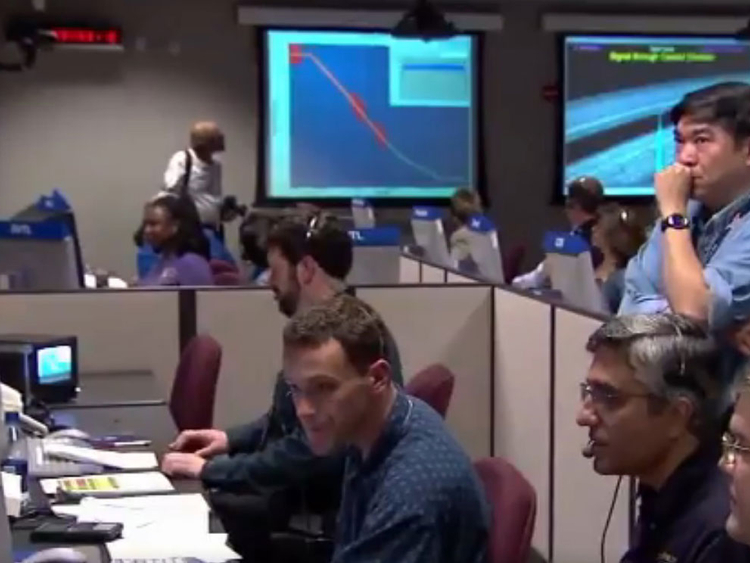
Do you have the skills and grit to protect the earth from aliens?
If so, a job may be waiting for you at the National Aeronautics and Space Administration (Nasa), which is offering the successful candidate a six-figure salary.
On its latest job advertisement, which had gone viral on social meida, Nasa announced that it is looking for someone who can help protect the earth from alien matter.
As a matter of policy, Nasa hires only US citizens for civilian positions, but there are certain exceptions to this rule.
The position, called “planetary protection officer”, may sound like a character from a sci-fi movie, but the agency has confirmed the job offer to US media.
It comes with a generous compensation package worth more than Dh50,000 monthly — or $124,406 to $187,000 a year.
The employee will be based in the United States and work full time, but will need to travel frequently.
The job will focus on the “avoidance of organic-constituent and biological contamination in human and robotic space exploration.”
Contamination avoidance
Nasa explained the job is important because, among other things, it will help them avoid any interference in their study of other worlds as they exist in their natural states, and avoid contamination that would cloud their ability to find out if there is indeed life outside the earth.
The harmful contamination that Nasa wants to avoid can occur during a rover landing on a distant planet or when returning samples from another celestial object.
Here’s a quick look at what a planetary protection officer actually does:
Lots of buzz today about our Planetary Protection Officer position, check out what our office actually does! https://t.co/fp5KUe7UpT pic.twitter.com/Tf8fEYZqpc
— NASA People (@NASApeople) August 2, 2017
Catherine Conley, NASA planetary protection officer, explains what the job entails: “Nasa strives to reach for new heights and reveal the unknown to benefit all humankind. In this pursuit, we explore places never before seen by humans, reaching out into the vast unknown of space."
“While doing so we learn more about ourselves in the process.
"Part of that mission is the responsibility of what is called planetary protection for protecting our own precious home and protecting the undiscovered country that we are now pioneering, from any harmful contamination we could introduce.”













